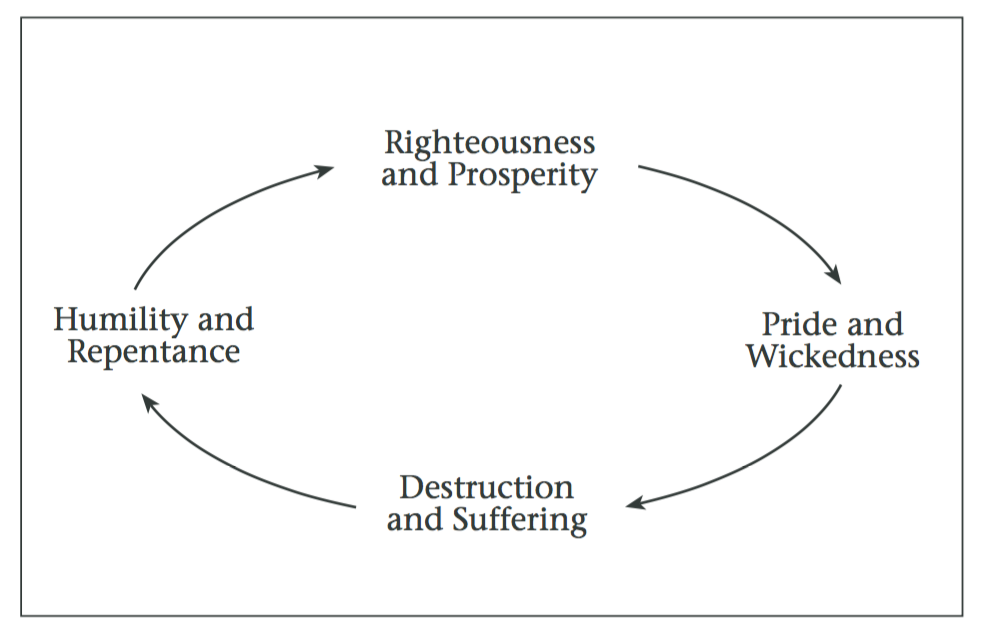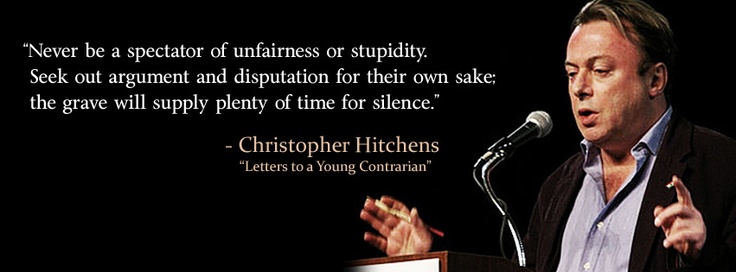“Repent and Return unto the Lord”
Helaman 13–16
LDS manual: here
Purpose
To encourage skepticism and critical thinking
Reading
This lesson is about Samuel the Lamanite. You know — this guy.
Helaman 13:2 And it came to pass that in this year there was one Samuel, a Lamanite, came into the land of Zarahemla, and began to preach unto the people. And it came to pass that he did preach, many days, repentance unto the people, and they did cast him out, and he was about to return to his own land.
13:3 But behold, the voice of the Lord came unto him, that he should return again, and prophesy unto the people whatsoever things should come into his heart.
13:4 And it came to pass that they would not suffer that he should enter into the city; therefore he went and got upon the wall thereof, and stretched forth his hand and cried with a loud voice, and prophesied unto the people whatsoever things the Lord put into his heart.
Samuel is calling the Nephites unto something called “repentance”, which is a twisted concept. See if this quote from the LDS Gospel Doctrine manual doesn’t make you agree.
President Ezra Taft Benson taught:
“Repentance means more than simply a reformation of behavior. Many men and women in the world demonstrate great will-power and self-discipline in overcoming bad habits and the weaknesses of the flesh. Yet at the same time they give no thought to the Master, sometimes even openly rejecting Him. Such changes of behavior, even if in a positive direction, do not constitute true repentance. . . .
“ . . . True repentance is based on and flows from faith in the Lord Jesus Christ. There is no other way. True repentance involves a change of heart and not just a change of behavior (see Alma 5:13)” (The Teachings of Ezra Taft Benson [1988], 71).
In other words, what you do doesn’t matter so much. It’s what you believe. This is in line with the presumed character of God, who will forgive misdeeds, but punishes people for misbelief.
Helaman 13:6 Yea, heavy destruction awaiteth this people, and it surely cometh unto this people, and nothing can save this people save it be repentance and faith on the Lord Jesus Christ, who surely shall come into the world, and shall suffer many things and shall be slain for his people.
Somehow, he knows Jesus’s name, way in advance.
Helaman 13:7 And behold, an angel of the Lord hath declared it unto me, and he did bring glad tidings to my soul. And behold, I was sent unto you to declare it unto you also, that ye might have glad tidings; but behold ye would not receive me.
If a guy was standing on a wall, babbling about how an angel was telling him stuff, I’d have reservations about believing him, too. Sorry — receiving him.
Helaman 13:8 Therefore, thus saith the Lord: Because of the hardness of the hearts of the people of the Nephites, except they repent I will take away my word from them, and I will withdraw my Spirit from them, and I will suffer them no longer, and I will turn the hearts of their brethren against them.
As we’ve seen, societies are more peaceful and prosperous when they become secular and ignore gods.
Helaman 13:9 And four hundred years shall not pass away before I will cause that they shall be smitten; yea, I will visit them with the sword and with famine and with pestilence.
A prophecy. I wonder if that will come true later on in the same book.
Helaman 13:12 Yea, wo unto this great city of Zarahemla; for behold, it is because of those who are righteous that it is saved; yea, wo unto this great city, for I perceive, saith the Lord, that there are many, yea, even the more part of this great city, that will harden their hearts against me, saith the Lord.
13:13 But blessed are they who will repent, for them will I spare. But behold, if it were not for the righteous who are in this great city, behold, I would cause that fire should come down out of heaven and destroy it.
Religious people think they’re acting as superheros, saving the rest of us. A better metaphor would be that God is a terrorist, and they’re human shields.
Slippery riches
Joseph Smith, in his pre-cult-leader days, got paid — and arrested — for trying to find lost treasure. Basically, it was a con job. You got people to pay you to find buried gold. You could use a magic rock. Smith did — the same rock that he later used to write the Book of Mormon.
Of course, you don’t find any gold because you have no special powers, but you’ve got to find a way to string your patron along, so you have to say, “We got awfully close — I’m sure if you give me just a little more money, we’ll find the treasure!” Then you have to invent some story, like maybe a witch or a spirit is protecting the treasure.
Or — you could say that you almost got it, but the treasure slipped away. It moved! Just like Bugs Bunny travelling underground, the treasure scooted away somewhere else. Darn that slippery earth!
It was a common enough dodge back in those days. (See, for example, Early Mormonism and the magic world view by D. Michael Quinn.) And wouldn’t you know, it makes an appearance here in the Book of Mormon.
Helaman 13:30 Yea, behold, the anger of the Lord is already kindled against you; behold, he hath cursed the land because of your iniquity.
13:31 And behold, the time cometh that he curseth your riches, that they become slippery, that ye cannot hold them; and in the days of your poverty ye cannot retain them.
13:32 And in the days of your poverty ye shall cry unto the Lord; and in vain shall ye cry, for your desolation is already come upon you, and your destruction is made sure; and then shall ye weep and howl in that day, saith the Lord of Hosts. And then shall ye lament, and say:
13:33 O that I had repented, and had not killed the prophets, and stoned them, and cast them out. Yea, in that day ye shall say: O that we had remembered the Lord our God in the day that he gave us our riches, and then they would not have become slippery that we should lose them; for behold, our riches are gone from us.
13:34 Behold, we lay a tool here and on the morrow it is gone; and behold, our swords are taken from us in the day we have sought them for battle.
13:35 Yea, we have hid up our treasures and they have slipped away from us, because of the curse of the land.
A good excuse works in a multitude of situations.
When did Jesus come?
The time of Jesus’s birth (if it happened at all) has been the source of speculation. Samuel (in 6 BCE) declares:
Helaman 14:2 And behold, he said unto them: Behold, I give unto you a sign; for five years more cometh, and behold, then cometh the Son of God to redeem all those who shall believe on his name.
He was probably off by a few years. According to the Bible, Jesus was born during the time of Herod, who died in 4 BCE. Samuel probably should have said “one more year cometh”. Whoops.
Helaman 14:5 And behold, there shall a new star arise, such an one as ye never have beheld; and this also shall be a sign unto you.
…
14:20 But behold, as I said unto you concerning another sign, a sign of his death, behold, in that day that he shall suffer death the sun shall be darkened and refuse to give his light unto you; and also the moon and the stars; and there shall be no light upon the face of this land, even from the time that he shall suffer death, for the space of three days, to the time that he shall rise again from the dead.
The Bible has it as three hours of darkness; the Book of Mormon extends this to three days. No reason for the extension is given.
Helaman 14:23 And behold, there shall be great tempests, and there shall be many mountains laid low, like unto a valley, and there shall be many places which are now called valleys which shall become mountains, whose height is great.
Can you imagine how much energy it would take to turn a mountain into a valley? Surely this would leave some kind of geological record.
Helaman 14:25 And many graves shall be opened, and shall yield up many of their dead; and many saints shall appear unto many.
That’s about as likely as the mountain and valley thing. That was lifted from Matthew, by the way, and no other Bible writer corroborates it (to say nothing of anyone else).
Helaman 14:28 And the angel said unto me that many shall see greater things than these, to the intent that they might believe that these signs and these wonders should come to pass upon all the face of this land, to the intent that there should be no cause for unbelief among the children of men —
Wait, so God is going to make provide evidence so that we won’t have any reason to disbelieve? From my chats with Mormons, that’s something that God strenuously refuses to do! What changed his mind?
Helaman 14:30 And now remember, remember, my brethren, that whosoever perisheth, perisheth unto himself; and whosoever doeth iniquity, doeth it unto himself; for behold, ye are free; ye are permitted to act for yourselves; for behold, God hath given unto you a knowledge and he hath made you free.
If the choice is between belief and punishment, then we’re not free. Any choice that results from a threat is not a free choice. That’s coercion.
Reactions to Samuel’s preaching were varied. Some people believed him.
Helaman 16:1 And now, it came to pass that there were many who heard the words of Samuel, the Lamanite, which he spake upon the walls of the city. And as many as believed on his word went forth and sought for Nephi; and when they had come forth and found him they confessed unto him their sins and denied not, desiring that they might be baptized unto the Lord.
Others were predictably less impressed at first.
Helaman 16:2 But as many as there were who did not believe in the words of Samuel were angry with him; and they cast stones at him upon the wall, and also many shot arrows at him as he stood upon the wall; but the Spirit of the Lord was with him, insomuch that they could not hit him with their stones neither with their arrows.
16:3 Now when they saw that they could not hit him, there were many more who did believe on his words, insomuch that they went away unto Nephi to be baptized.
Good for them; they updated with new evidence.
But others thought Samuel’s force field was of Mephistophelian aetiology.
Helaman 16:6 But the more part of them did not believe in the words of Samuel; therefore when they saw that they could not hit him with their stones and their arrows, they cried unto their captains, saying: Take this fellow and bind him, for behold he hath a devil; and because of the power of the devil which is in him we cannot hit him with our stones and our arrows; therefore take him and bind him, and away with him.
This isn’t a crazy conclusion to reach. Honestly — if you saw someone with a supernatural force field, how could you tell if it was coming from God, the Devil, Zeus, or the Flying Spaghetti Monster? All supernatural explanations are untestable and indistinguishable.
Helaman 16:7 And as they went forth to lay their hands on him, behold, he did cast himself down from the wall, and did flee out of their lands, yea, even unto his own country, and began to preach and to prophesy among his own people.
16:8 And behold, he was never heard of more among the Nephites; and thus were the affairs of the people.
So he went.
Time passed.
Helaman 16:13 But it came to pass in the ninetieth year of the reign of the judges, there were great signs given unto the people, and wonders; and the words of the prophets began to be fulfilled.
16:14 And angels did appear unto men, wise men, and did declare unto them glad tidings of great joy; thus in this year the scriptures began to be fulfilled.
It’s Christmas! Too bad Jesus had been born four years previously.
Helaman 16:15 Nevertheless, the people began to harden their hearts, all save it were the most believing part of them, both of the Nephites and also of the Lamanites, and began to depend upon their own strength and upon their own wisdom, saying:
16:16 Some things they may have guessed right, among so many; but behold, we know that all these great and marvelous works cannot come to pass, of which has been spoken.
This shouldn’t be dismissed. If someone makes a sufficient number of blind guesses, some of them will come true by coincidence. This is a principle that mediums use. They throw out a large number of suggestions, counting on us to remember the hits and forget the misses.
This, from the late Robert Todd Carroll:
The fact is, psychics may know certain things about you in the same way that many people know many things about others by knowing their age, sex, occupation, education, where they live, how they dress, what kind of jewelry they’re wearing, or their religion. Does anyone have perfect knowledge of others based on what are sometimes called warm reading techniques? Of course not. We’re dealing with probabilities, not absolute certainties here, but it doesn’t matter. The psychic is not obligated to stop the reading when she makes a mistake. If she misinterprets your wearing black as a sign of grieving for someone who has died, she doesn’t have to say “oops, wrong again.” No, she just slithers on to the next question or statement, ignoring her “miss” and counting on you to ignore it as well. Eventually, she’ll hit something that resonates with you, that you can validate. The key to a psychic reading is not the psychic’s ability to tap into a world you are not directly privy to. The key to a psychic reading is your willingness to find meaning or significance in some of the statements she makes or questions she asks. If mentioning the death of a loved one evokes no response from you, the psychic will move on to another statement, another question.
Helaman 16:17 And they began to reason and to contend among themselves, saying:
16:18 That it is not reasonable that such a being as a Christ shall come; if so, and he be the Son of God, the Father of heaven and of earth, as it has been spoken, why will he not show himself unto us as well as unto them who shall be at Jerusalem?
Is it reasonable that Jesus would come? Consider: God, who could make any plan he wanted to save the souls of his children, decided on a barbaric and repugnant plan that inexplicably involved getting his son killed, which humans wouldn’t be able to understand, and that a very few would accept.
Yes, I find that quite unreasonable. But I shouldn’t be like that: it’s almost Christmas! In the next lesson, we’ll see the circumstances leading up to the birth of Jesus.




Recent Comments